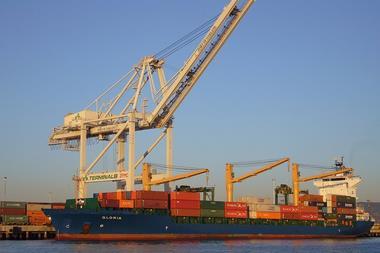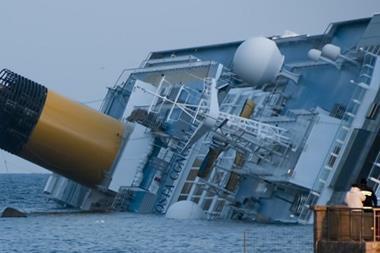Governments’ main answer to continued economic uncertainty seems to be to legislate. But what risk managers really need is a considered approach to the problems rather than political crowd-pleasing

Like a movie monster that refuses to die, the economic crash of 2008 lumbers on, stamping across politics and economics, while governments try to find a way to stop the destruction. All around the world, on the streets, in the papers and on television the pressure is on to do something. Many ordinary people feel frightened, out-of-control - and they want elected representatives to act.
But this drive to legislate against risk brings its own risks.
“We need better safeguards that are anticipatory and dynamic,” said Swiss Re chief risk officer David Cole at the World Economic Forum in January. “Some of our regulations have traditionally been prescriptive, over-complicated, inadequate, fragmented and too slow to respond to the accelerated pace of change.”
New regulation is on its way, there’s no doubting that. But how it will impact on business and whether it will actually make the world a safer place remains far from clear.
“Things will change in the financial world but not just in 2012 - there’s pressure all around the world with economies in trouble or trying their best to get to better growth,” says Arcadia Group head of risk management and compliance Colin Campbell. “In the UK, we have media, political and public pressure on the banks, which will eventually result in either regulatory moves or self regulation, but all done ‘in public’. The Basel III environment is coming nearer for insurers, and the financial sector will feel the impact - which will impact on all European business.
Cole adds: “The outcome of the Greek - and other eurozone economies’ - economic improvements will not be known for many months, or even years, but there are increased suggestions that Greece may have to leave the euro. This will affect all UK businesses in some way. Away from the financial crisis, there’s a great deal of EU regulation to hit in the future: changes to data protection legislation is imminent, with the impact unknown at this time - but these could act as barriers to trade.”
Most of the current regulatory framework was developed in response to 19th and 20th century problems focused on national issues. In the new millennium, most of the issues facing legislators are international, and regulating across borders is uncertain territory. Natural disasters such as the Icelandic ash cloud and the Japanese tsunami illustrate just how far the impact of a local incident can spread. But how can states respond effectively?
Lack of consensus
“We do try to learn from the mistakes of the past, but we are in what seems to be new territory right now and governments are unsure about what to do,” Campbell says. “Business still has a voice, but less so than before and there’s no real consensus among politicians or economists as to what the best routes are.”
In the era of mass media, there can be an intense public pressure for governments to take action swiftly in response to disasters or scandals - but the old adage of act in haste, repent at leisure still applies. “The principal problem is that, particularly in democracies, there can be a protectionist, populist response by legislators,” says World Economic Forum managing director Lee Howell. “Those two factors feed off each other and can come into play very quickly. Conversely, what we actually need is more risk taking by politicians: we need a bolder vision that genuinely looks to the future, not influencing the result of the next political contest.
We need to take the long view and politicians need to step up and take account of what we don’t know: the black swans”
Lee Howell, World Economic Forum
“We seem to be living in an era of shocks, but it doesn’t have to be like this. We need to take the long view and politicians need to step up, look at the dancefloor from the balcony and take account of what we don’t know: the black swans. Take the situation in Iran. We have all seen that coming since at least the 1990s, yet no one was taking the long view. Or those that were didn’t have the confidence to speak up and now we all seem surprised.”
But Howell argues that living in an era of big data is a huge advantage for legislators - the problem is how to assimilate it all with an eye to the future, rather than trying to solve yesterday’s problems.
Looking for best practice
“There are much better tools available now,” he says. “The problem is, like science, things move forward on the basis of failure. That’s how we learn. But there’s little appetite for failure in the public policy sphere, so the question is: how can legislators innovate?” One answer may be a greater willingness to look outwards to examples of best practice around the world and learn from what works elsewhere. “Japanese municipalities were very good at this in the 1980s,” Howell says.
The fear is that without a new approach regulators will just create new levels of complexity. “Already in many OECD countries you can be looking at hundreds, if not thousands, of pages of regulation running across multiple agencies,” Howell says. “How can that be navigated? It’s great work for lobbyists and lawyers, sure. But just because there are more rules, doesn’t mean that the system is any safer. Efficiency is also important.”
Faced with all this uncertainty, how should risk managers prepare? “Don’t panic,” Campbell says. “Review current identification systems and make sure you keep your board up to date with relevant regulatory changes.
“We will need to be alert to fast change and we need to keep our eye on the ‘regulatory ball’ outside of the financial markets and ensure we identify new moves, national, EU and beyond - for example, in Asia where the Chinese authorities are changing legislation regarding foreign companies trading in China. The same thing is happening in India.”
For now, businesses are trapped between a lumbering recessionary monster and unpredictable, trigger-happy governments playing to the crowd. Risk managers need to do all they can to keep their employers out of the crossfire.
Clean air bill thwarted by the economy
The highly unpredictable politics of legislation is well-illustrated by US president Obama’s recent attempts to reform smog regulation. In September 2011, he was forced to ask the Environmental Protection Agency to shelve the plans after coming under sustained attack from congressional Republicans and business lobbyists, who successfully argued that more red tape was not what was needed at a time of economic uncertainty. Would this have been the result in the boom years? What if there wasn’t an election slated for 2012? Where does the public interest really lie? In a democracy, unpicking the relative influence of a tangle of vested interests is essential to understanding political risk.
Exacerbating the Great Depression

Although the Great Depression of the 1930s was caused by a stock market crash, many economists argue that protectionist legislation, such as the Smoot-Hawley Tariff Act of 1930, which raised tariffs on many thousands of goods imported into the USA, made it far worse by sparking a trade war.
The Act was intended to support US businesses over foreign competitors, but other countries quickly followed Washington’s lead with their own legislation aimed at propping up domestic producers. This quickly caused international trade volumes to be sucked into a downward spiral, exacerbating unemployment and, arguably, prolonging the Depression.
Key points
- While new regulation is a given, it is unclear how it will affect business
- Other changes, such as in data protection legislation laws, could act as trade barriers
- The current regulatory framework was developed in response to 18th and 19th century problems, not a 21st century global economy
- There is a risk of politicians making populist, protectionist decisions instead of looking beyond the next election
- Legislators should innovate by looking around the world for examples of best practice




















No comments yet